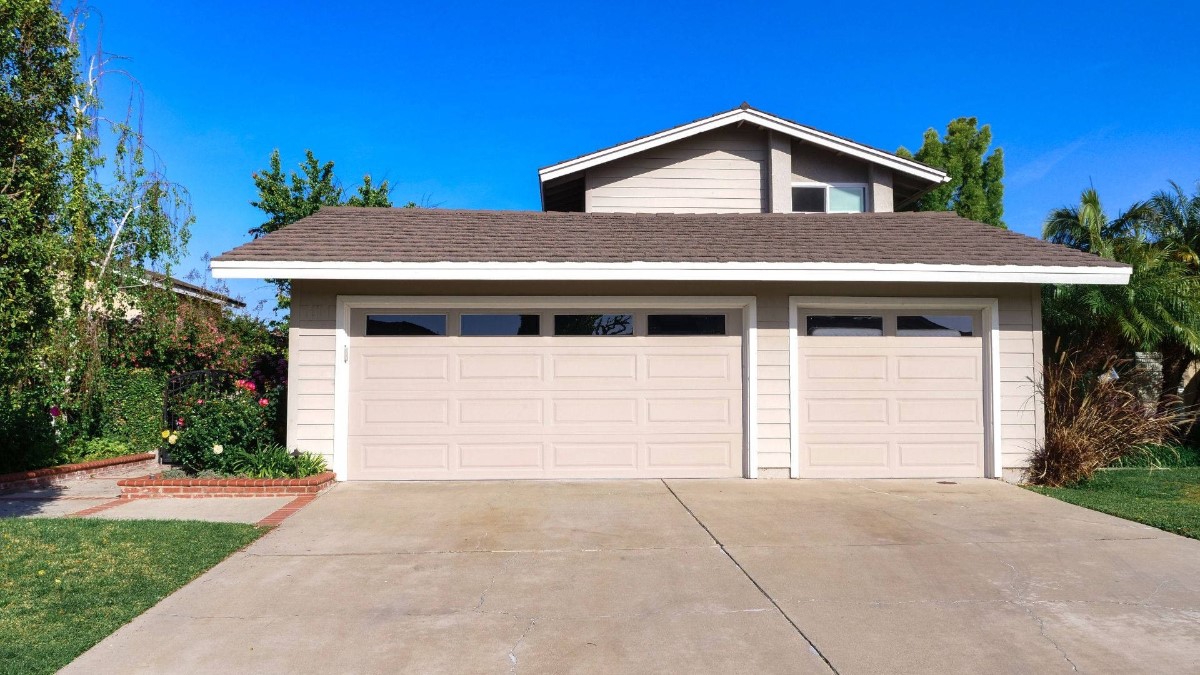I make $70,000 a year how much house can I afford? It’s a common question.
Navigating the homeownership journey can be both exciting and daunting, especially when it comes to determining how much house you can afford on your $70,000 annual income.
The good news is, by breaking down various financial factors, you can confidently approach the housing market and find a home that aligns with your budget and lifestyle.
Post Contents
I Make $70,000 a Year How Much House Can I Afford? Understanding Home Affordability
When you’re looking to buy a home, it’s essential to understand how much house you can afford.

Income Factors
Your income plays a significant role in determining your ability to afford a house.
To calculate the affordability, start by knowing your gross annual income, which is your salary before any taxes and deductions. In your case, you make $70,000 per year.
Next, you’ll want to convert that into your gross monthly income, which is done by dividing your annual income ($70,000) by 12, giving you $5,833.
This is the total amount you have each month before taxes.
Debt-to-Income Ratio
Debt-to-income (DTI) ratio is another crucial factor in home affordability. It measures the percentage of your gross monthly income that goes toward paying your debts.
Generally, a lower DTI indicates you have a better balance between your earnings and debt obligations.
For example, let’s assume you have the following debts:
- Monthly car loan payment: $300
- Student loan payment: $150
- Credit card payment: $200
- Additional debt: $100
Your total monthly debt is $750. To find your DTI, divide your total monthly debt ($750) by your gross monthly income ($5,833):
DTI = (Total Monthly Debt / Gross Monthly Income) * 100
DTI = ($750 / $5,833) * 100
DTI = 0.12863 * 100
DTI = 12.86%This means about 12.86% of your pre-tax income goes towards paying your debts. As a general rule, lenders prefer a DTI of 36% or lower, including your potential mortgage payment.
When estimating how much house you can afford, you need to consider your current DTI and allowable mortgage payments within that 36% threshold.
Monthly Expenses and Budgeting
Mortgage Payments
When you make $70,000 a year, it’s important to consider how much of your income will go towards your monthly mortgage payment.
A general rule of thumb is to allocate 25-28% of your pre-tax monthly income to your housing expenses.
At your income level, you can expect to have a monthly mortgage payment of around $1,450 – $1,633. This figure takes into account the principal and interest components of your mortgage payment.
For example, with a 30-year mortgage at an interest rate of 4%, your payment would be:
Principal: $173,702
Interest rate: 4%
Term: 30 years
Est. monthly payment: $1,350Note that this is just an example and actual percentages and payment amounts may vary.
Property Taxes and Insurance
In addition to your mortgage payment, you’ll also need to budget for property taxes and homeowners insurance.
These expenses can vary depending on factors like the location and type of home you’re purchasing. In general, you can expect the following costs:
- Property taxes: 1-3% of the home’s assessed value, depending on the location
- Homeowners insurance: roughly $35 per month for every $100,000 in home value
To provide an estimate, let’s say your house costs $173,702 and has an assessed value of $150,000. Your property taxes and insurance expenses might look like this:
Property tax (2%): $3,000 per year ($250 per month)
Home insurance ($35 per $100k): $525 per year ($43.75 per month)Additional Homeownership Expenses
Besides your mortgage, property taxes, and insurance, don’t forget to plan for other monthly expenses related to homeownership. This can include:
- Private Mortgage Insurance (PMI): If your down payment is less than 20%, you may need to pay PMI, which usually costs between 0.3% and 1.5% of your loan balance per year, divided by 12 for your monthly payment.
- Maintenance and repairs: Plan for at least 1% of your home’s value per year for ongoing maintenance and repairs.
- Homeowners Association (HOA) fees: If your home is within an HOA, expect fees ranging from $200 to $500 per month.
Mortgage Loan Options
When you’re making $70,000 a year and looking to buy a house, it’s essential to explore different mortgage loan options to find the right one for your financial situation.
Conventional Loans
Conventional loans are the most common type of mortgage, often provided by banks and private lenders. They typically require a higher credit score and a down payment of at least 3%.
However, you may want to consider saving for a 20% down payment to avoid private mortgage insurance (PMI), which can increase your monthly payment.
- Loan-to-value ratio: The amount of the loan compared to the market value of the house
- Minimum down payment: Usually 3% to 20% of the purchase price
- Credit score: Typically requires a credit score of 620 or higher
Loan Terms and Interest Rates
Mortgage rates and loan terms vary depending on the lender and your financial profile. Here’s a breakdown of the most common terms and what they mean for you:
| Term | Definition |
|---|---|
| 15-year fixed-rate mortgage | Fixed-rate mortgage for a 15-year term |
| 30-year fixed-rate mortgage | Fixed-rate mortgage for a 30-year term |
| Adjustable-rate mortgage (ARM) | Mortgage with a variable interest rate that may adjust after an initial fixed period |
It’s essential to compare interest rates (APRs) from multiple lenders to find the best rate and terms for your needs.
A lower interest rate results in lower monthly payments and less money paid in interest over the loan term.
Mortgage Programs and Assistance
Don’t forget that various mortgage programs and assistance options could help you get a more affordable loan.
Some of these programs are aimed at first-time homebuyers, while others cater to individuals with low to moderate incomes. Examples include:
- FHA loans: Federal Housing Administration-insured loans with lower down payment requirements and more flexible qualification criteria
- VA loans: Department of Veterans Affairs-backed loans for eligible military service members, veterans, and their spouses
- USDA loans: United States Department of Agriculture loans for rural property purchases with low to moderate-income requirements
- Down payment assistance programs: State and local programs that offer funds to help with down payment and closing costs
It’s important to consult with a mortgage broker or your lender to discuss your eligibility for these programs and their specific requirements.
Considering Your Down Payment
Down Payment Requirements
When looking to buy a home, it’s essential to consider the down payment you’ll need. Most lenders typically require a 20% down payment.
For example, on a $300,000 home, you’d need a down payment of $60,000. A larger down payment can:
- Improve your chances of getting approved for a loan
- Lead to a better mortgage rate
- Reduce your monthly mortgage payments
Keep in mind that if your down payment is less than 20%, you may be required to purchase mortgage insurance, which increases your monthly payment.
Saving for a Down Payment
To save for a down payment when you make $70,000 a year, consider these factors:
- Home price: Determine the range of home prices you can afford at your income level. For example, with a monthly pre-tax income of $5,833, you may aim to spend around 25% on housing ($1,458 per month).
- Current debts: Make sure to factor in your current debts when saving for a down payment. For instance, if you have a $750 monthly debt payment, adjust your housing budget accordingly.
- Credit scores: A good credit score (720-850) can boost your chances of getting a favorable mortgage rate and affect the size of your down payment. Monitor your credit score and take necessary steps to improve it before applying for a mortgage.
- Down payment savings: Set a savings goal based on the required down payment for the home price range you’re considering. Aim to save consistently and consider setting up an automatic transfer to a separate savings account for your down payment.
When saving for a down payment, it can be helpful to create a budget and track your spending.
It may be necessary to cut back on non-essential expenses, increase your income, or explore alternative down payment assistance programs to reach your goal.
Planning and discipline are crucial to achieve the dream of homeownership.
Calculating Home Affordability
When you’re making $70,000 a year, calculating how much house you can afford is essential.
Mortgage Calculators
Mortgage calculators are an excellent way to estimate your monthly mortgage payment, considering factors such as your down payment, home price, loan term, and interest rate.
To find a reliable home affordability calculator, you can check sites like Zillow or realtor.com.
Here are the steps to use a mortgage calculator:
- Enter your annual income ($70,000 in this case)
- Add your total monthly debt payments (such as student loans and car payments)
- Input your desired down payment amount (a minimum of 3% is recommended)
- Choose your preferred mortgage interest rate and loan term
The calculator will then estimate the maximum home price you can afford, helping you determine a budget for your home search.
The 28/36 Rule
Another helpful method for determining home affordability is the 28/36 rule. This guideline helps you establish a safe and manageable budget for your housing expenses. The rule consists of two parts:
- 28%: Your monthly housing expenses (including mortgage payments, property taxes, and insurance) should not exceed 28% of your total gross monthly income. For a $70,000 salary, that’s $1,633 per month.
- 36%: Your total monthly debt payments, including housing expenses and other debts (student loans, car payments, credit card debt, etc.), should not exceed 36% of your gross monthly income. For a $70,000 salary, that’s $2,100 per month.
To apply the 28/36 rule, simply calculate 28% and 36% of your monthly income and ensure your desired housing expenses and total debts fall within those limits.
This way, you can maintain a healthy financial life while affording your dream home.
Factors Influencing Home Affordability
When determining how much house you can afford on a $70,000 annual salary, there are several factors to consider.
Credit Score and Loan Eligibility
Your credit score plays a crucial role in your ability to qualify for a mortgage and secure a favorable interest rate.
Lenders also take into account your debt-to-income (DTI) ratio, which compares your monthly debt obligations to your gross income.
A lower DTI ratio indicates less financial risk, making you a more attractive borrower.
To improve your chances of securing a mortgage:
- Maintain good credit history and pay your bills on time
- Keep your credit utilization at 30% or lower
- Limit new debt applications
Your lender will take these factors into account when determining the amount you can borrow and the type of mortgage you may qualify for, which will influence your home buying budget.
Location and Cost of Living
The location of the property and the cost of living in the area also impact home affordability.
In regions with a high cost of living, you may need to consider a smaller home, a fixer-upper or a property in a less desirable neighborhood to stay within your budget.
To gauge the cost of living in a particular area, consider:
- Median home prices and sales data
- Property taxes and homeowners insurance rates
- Utilities and maintenance costs
You should also factor in any Homeowners Association (HOA) fees, which can vary widely depending on the neighborhood.
Emergency Fund and Future Expenses
As a potential homeowner, having an emergency fund is essential to manage unexpected costs. Homeownership comes with additional expenses, such as:
- Home maintenance and repairs
- Appliances and furniture purchases
- Increases in property taxes and insurance rates
An ideal emergency fund should cover at least three to six months of living expenses, including your mortgage payment.
This cushion will also help you manage future expenses and protect your home equity in case of financial hardships.
Key Takeaways
- On a $70,000 annual salary, your monthly gross income (pre-tax) is around $5,833.
- It’s recommended to spend between 25% and 33% of your monthly gross income on housing costs. Therefore, you should aim for a total monthly payment (including principal, interest, taxes, and insurance) between $1,450 and $1,633.
- Your total monthly debt payments (including car loans, credit card payments, etc.) should not exceed 36% of your gross income. That means your maximum monthly debt payments, including your mortgage, should be around $2,099.
- Factors such as outstanding debts, credit scores, and down payment amount can impact the house price you can afford. With a strong credit score and at least a 20% down payment, you are more likely to qualify for a larger loan amount.
- Based on these recommendations, you can potentially afford a house between $226,000 and $380,000. However, it’s essential to consider your unique financial situation and budget to determine the appropriate range that suits your needs.
These key takeaways are meant to serve as a starting point for your house hunting journey.
Make sure to consult with a financial advisor or a mortgage professional to fully understand your buying power and to make the best decision for your individual financial situation.
Happy house hunting!






























